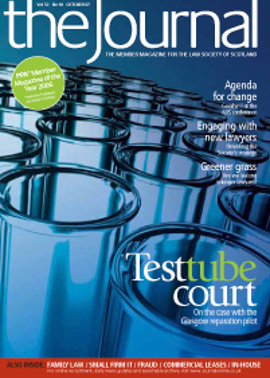Court bars in-house privilege

9.00am, 17 September 2007. As a crowd of lawyers and media alike poured into the European Court of Justice to find out whether the European Commission had won its long battle against Microsoft (which, incidentally, it had), a smaller group of us gathered in a courtroom along the corridor to witness the handing down of an equally important, but much less publicised, judgment.
The decision in Akzo Nobel Chemicals v Commission (Joined cases T-125/03 and T-253/03) was much awaited. It was an opportunity for the Court of Justice to revise the scope of legal professional privilege (“LPP”) under EU law. Since the judgment in AM&S v Commission (155/79) [1982] ECR 1616, the position has been that advice given to a company by an in-house lawyer is not privileged. Only communications with an external EEA-qualified lawyer, or internal notes reporting the content of communications with such a lawyer (T-30/89 Hilti v Commission [1990] ECR II-163, order of 4 April 1990), have been covered by LPP.
The Akzo raid
The background to the case was an investigation (“dawn raid”) carried out by the Commission and the Office of Fair Trading in February 2003, at the premises of Akzo Nobel Chemicals and Akcros Chemicals in Eccles, Manchester. During the investigation, in which the Commission took copies of a large number of documents, Akzo advised that certain documents in a particular file might be covered by LPP, and the Commission could not therefore have access to them.
A dispute arose as to whether these documents were privileged or not. The documents included an internal memorandum detailing information collected within Akzo with a view to obtaining outside legal advice, with handwritten notes referring to contacts with one of Akzo’s external lawyers, and a series of emails between the general manager and Akzo’s in-house counsel. The debate as to whether these documents were privileged or not remained unresolved, and Akzo subsequently appealed to the Court of First Instance (“CFI”) the Commission’s decision to take copies.
In case of dispute
Akzo’s appeal raised, essentially, two questions. First, what procedures should the authorities follow when, during an investigation, LPP is claimed in respect of a document? Secondly, and more importantly, were the documents privileged?
In answering the first question, the CFI gave guidance as to what should be done when privilege is claimed during a Commission investigation. It found that a company does not need to reveal the contents of a document if it gives the Commission “relevant material” to prove that the document is privileged. It also found that a “cursory look” by the Commission at the general layout of a document would often allow it to decide whether it was privileged or not; however, if even a cursory look would disclose confidential information, the company might refuse access. If the Commission disagreed, a copy of the document was to be put in a sealed envelope until the dispute was resolved by appeal to the CFI.
In-house, not independent
On the scope of LPP under EU law, the CFI rejected Akzo’s plea that it should be extended to cover in-house lawyer communications. It did, however, extend the scope of LPP in one respect: it held that internal documents drawn up exclusively for the purpose of seeking legal advice from a lawyer were privileged, the burden resting on the company to prove that this was the purpose of the documents. Applying this to the copies of the internal memorandum Akzo claimed it had discussed with an external lawyer, the CFI found that they were not privileged, as it had not been proved that the memorandum had been drawn up exclusively for this purpose.
Turning to the emails between the general manager and Akzo’s in-house counsel, Akzo argued that its lawyer was a member of the Netherlands Bar, and any communication with a lawyer belonging to a bar or law society should surely be privileged as his or her independence was assured. It also sought to convince the court that the position under AM&S was outdated and ripe for change. The CFI rejected both arguments. It held that a lawyer cannot have the required degree of independence if they are employed by their client (unlike in Scotland, in some EU member states such as France, in-house lawyers do not, indeed cannot, belong to a law society); and also found that many EU member states still exclude in-house communications from LPP.
The Akzo judgment is not only a welcome clarification on the scope of LPP under EU law (whether one agrees with the conclusion or not), but it also raises important implications for in-house lawyers throughout Europe. Only time will tell if the decision of the CFI will be appealed to the Court of Justice, and the interesting debate started all over again.
Fiona Young is an associate in Baker & McKenzie’s European and Competition Law Practice in Brussels.
Cases cited in this article can be accessed at http://curia.europa.eu/en/content/juris .
In this issue
- Advocacy in mediation
- Your voice will count
- Does justice need fixing?
- A case for trial?
- The tide for change
- New lawyers for all
- Leaving the profession
- Three proposals
- Options ahead on standards
- Know the need, know the cure
- The file at your fingertips
- Fraud: making your strategy work
- A wider view
- Pub games reborn
- Working with OSCR
- Goal to Leeds
- "We're all doomed" - or are we?
- Website reviews
- Book reviews
- Out of my depth?
- Court bars in-house privilege
- Leases: the war is over?
- ARTL picks up speed






